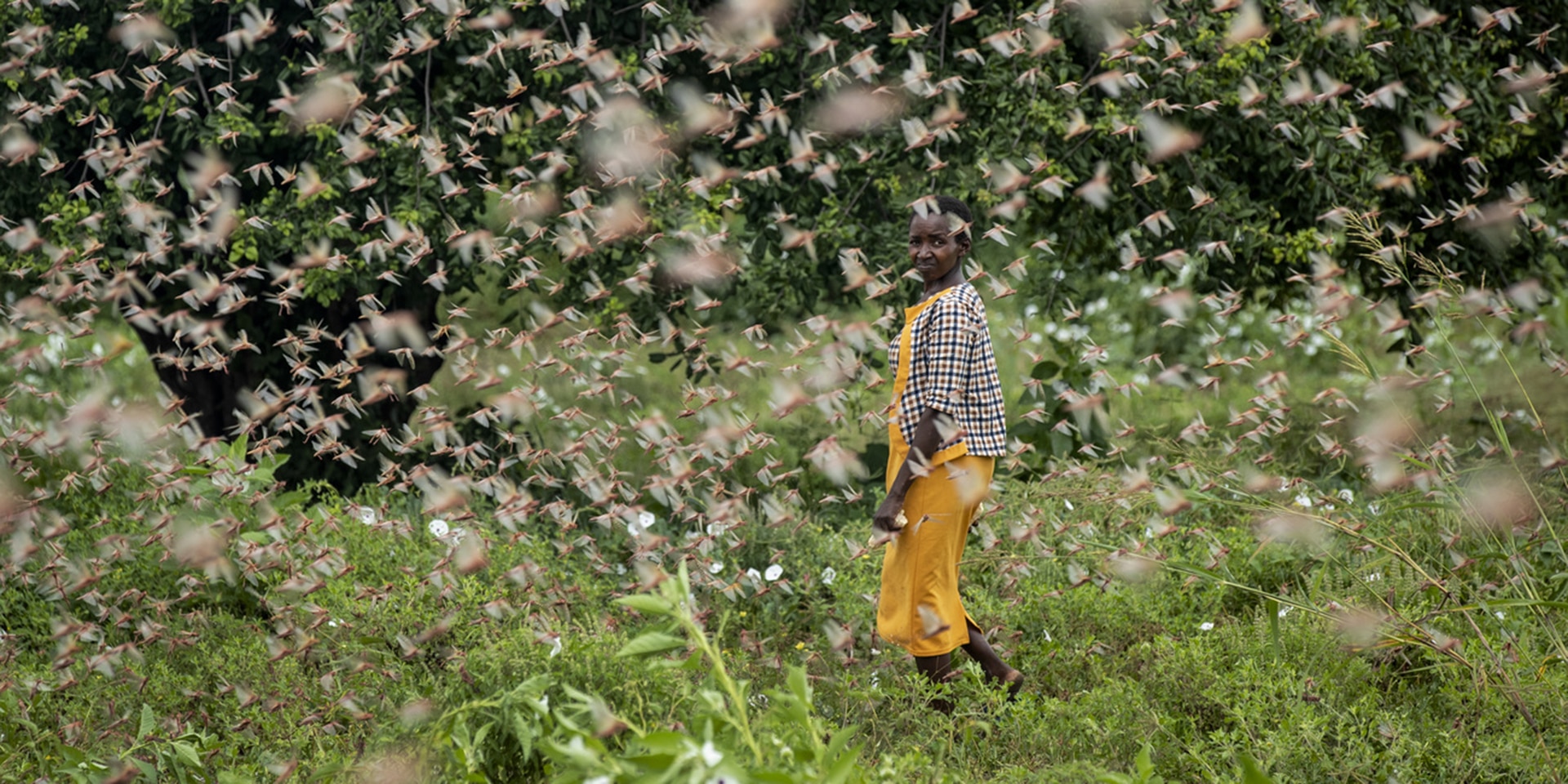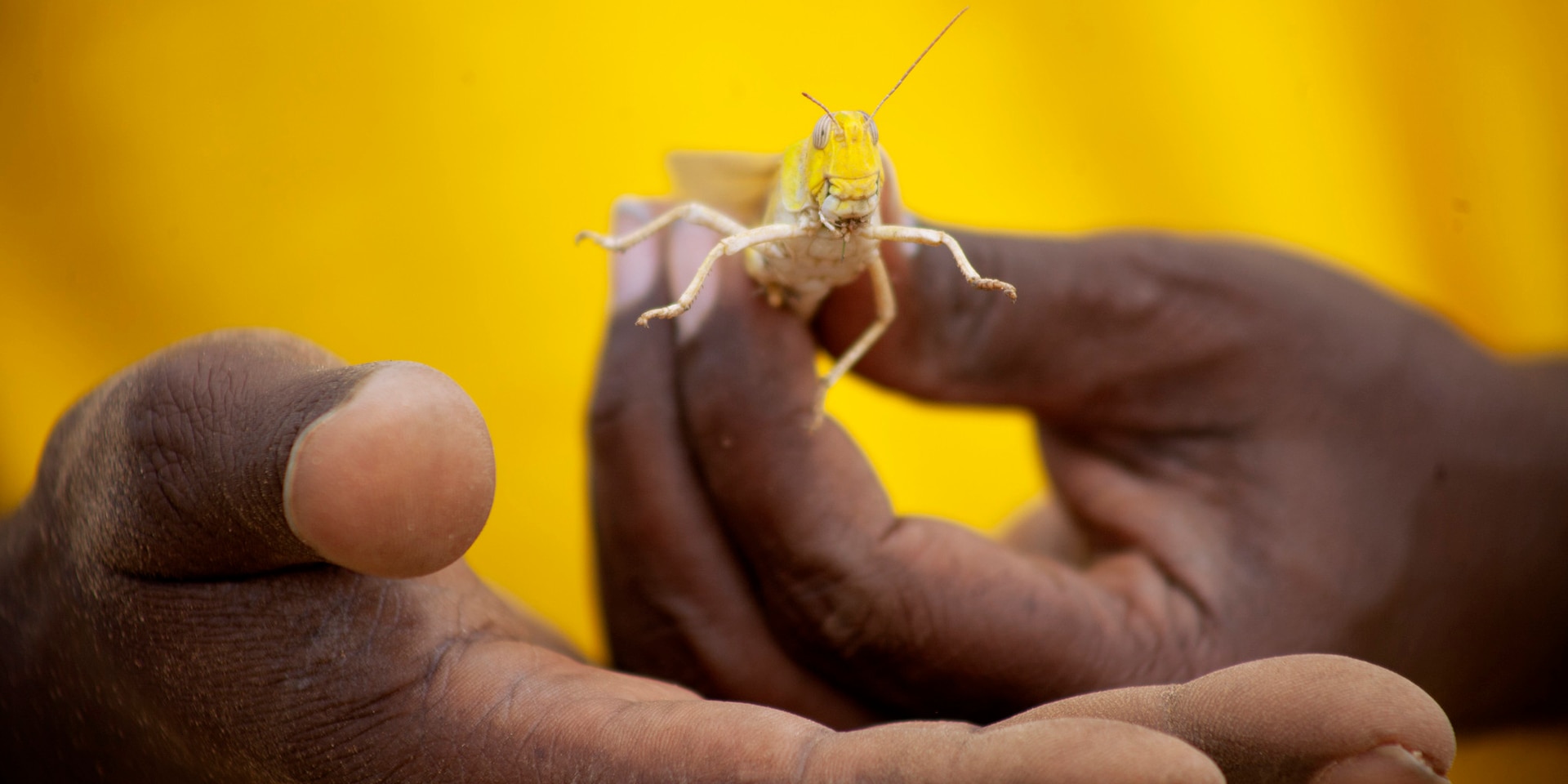Switzerland donates CHF 1 million to tackle desert locust infestation in East Africa
East Africa is experiencing its worst desert locust infestation in decades. The Swiss Agency for Development and Cooperation (SDC) is donating CHF 1 million to the Food and Agriculture Organization of the United Nations (FAO) to help stem the outbreak, mitigate the damage caused by this pest, and support the families affected. Depending on how the crisis evolves, Switzerland will consider mobilising additional funding in its partner countries.

A farmer walks through a swarm of desert locusts feeding on her crops in the village of Katitika, Kenya. © Keystone
Billions of insects have been devouring their way through crops across Kenya, Ethiopia, Somalia and now also Uganda and South Sudan. So much so that famine is now a serious threat. According to the FAO's latest information, the recent outbreak poses an unprecedented threat to the food security of tens of millions of people in Ethiopia, Kenya and Somalia. The FAO has launched an emergency appeal. Switzerland is contributing CHF 1 million.
"In the past, we have allocated emergency funds to respond to the consequences of drought and floods in the Horn of Africa. The locust infestation is having an equally devastating impact on the food security of local people, who can only look on helplessly as their crops are lost," says Manuel Bessler, Switzerland's Humanitarian Aid Delegate.
A voracious insect that covers long distances at great speed
The economies of the countries affected rely heavily on agriculture, which accounts for about 35% of GDP in the Horn of Africa and more than 22% in Uganda. The desert locust's voracity leaves little respite for the tens of thousands of hectares of coffee, cereal and pasture fields of thousands of local herders and farmers.
At under 9 centimetres long, the size of the desert locust is no indication of its appetite. But as the insects form gigantic swarms, millions of mandibles devour any green vegetation in their path. According to the FAO, a swarm of 200 billion locusts consumes 400,000 tonnes of food per day. This is equivalent to Switzerland's entire annual vegetable production. The locusts can fly up to 150 kilometres a day in search of food. If the infestation is not halted quickly, the FAO estimates that the number of insects could increase 500-fold by June.
Switzerland responds to international appeal for aid
The FAO has estimated that USD 76 million will be needed to rapidly control the spread of the pest and to provide families affected with emergency assistance.
World Food Programme Executive Director David Beasley, has again stressed the urgency of the situation, saying that if action is not taken immediately, it will take "up to 15 times that amount to assist people devastated by losing crops and livelihoods" as the problem spreads.

Switzerland is contributing CHF 1 million as part of its international cooperation. The SDC will consider mobilising additional funding within its areas of intervention if the crisis persists and a further response is required.
The international funding will be used to strengthen efforts to combat the destructive effects of the locusts, to monitor the situation, to provide financial support to the families affected and to replant crops.
Supporting food security among communities in Somalia, Ethiopia and northern Kenya has been a priority of Swiss development aid since 2013.
